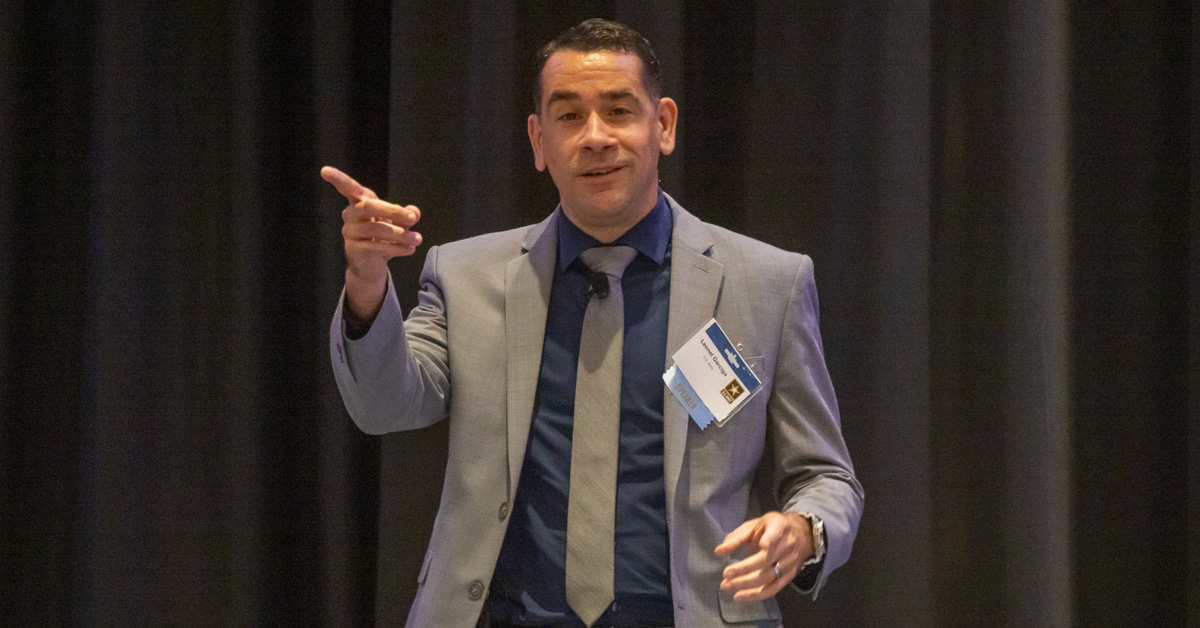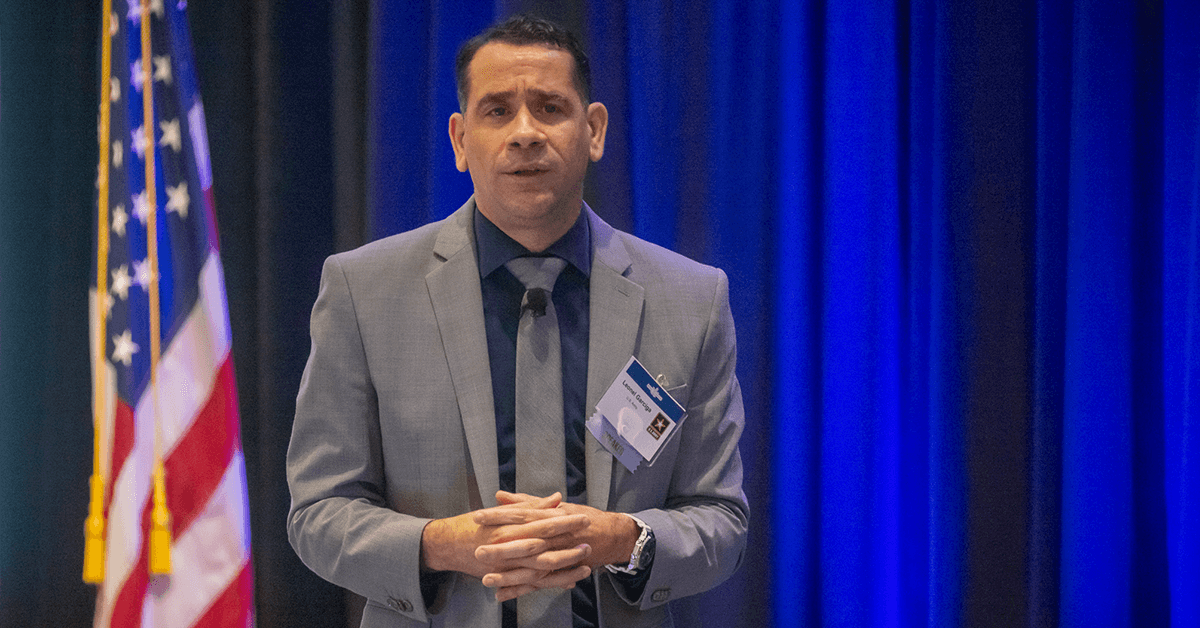
Army CIO Leonel Garciga said at the 2025 Army Summit that he'd kill "butts in seats" contracting if he could. Image: Charles McClanahan
Army CIO Garciga Targeting ‘Butts in Seats’ in Contracting Reform
Service-providing GovCons that typically operate based on hours worked rather than outcomes achieved can expect to be targeted for further contracting reform, a top Army official said Wednesday at the Potomac Officers Club’s 2025 Army Summit.
Leonel Garciga, U.S. Army chief information officer and a two-time Wash100 Award winner, said he would kill “butts in seats” contracting if he could. “Butts in seats” is the colloquial term for companies that primarily provide personnel to fill government roles on-site, rather than deliver innovative solutions, products or intellectual property. The Department of Defense, he said, is reimagining contracting as part of the Army Transformation Initiative, which seeks to reform the acquisition process and modernize inefficient defense contracts to prepare the Army for future warfare.
“You’re going to see a lot of momentum in that space here,” Garciga said. “We have a really tight group in the Army to really transform contracting and very quickly.”
Learn about defense IT research efforts at the Potomac Officers Club’s 2026 Defense R&D Summit on Jan. 29! Discover ways to tailor your offerings to better serve the Pentagon in its critical IT research. Secure your seat today for this prestigious GovCon conference.

Outcomes-Based Contracting
The Army is instead prioritizing outcomes-based contracting. This is a business model that provides compensation based on the results a contractor achieves, instead of simply paying a contractor for the service it provides.
Garciga also wants to improve how the Army writes service level agreements, or SLAs, and reform them to reflect how they are drafted in the commercial space. SLAs establish a software provider’s minimum performance obligations and how much access the customer will have to applications or services, including the customer’s own data.
Garciga said “no company in the world” would get into a contract with a software-as-a-service, or SaaS, provider as the Army does. Healthcare data is managed in this method, he said, so why not do it within the Army?
“Maybe we wrote a crappy SLA,” Garciga said. “[But] if you’re not willing to play ball, you’re not going to be a part of the ecosystem.”
How Is the Army Modernizing Cybersecurity Certification?
The Army also wants to modernize cybersecurity training and certifications because there are many “paper tigers” out there, or those with certifications who appear outwardly powerful but are, in reality, weak or ineffectual. Many contractors with cybersecurity certifications, he said, cannot triage anything.
Garcgia is big on practical experience in addition to education. The Army wants to start grading cyber certification holders on their work, which he said is performed for offensive cybersecurity, but not defensive.
“Coming into the cyber world and being graded on your homework that you allegedly did, I think is really important,” Garciga said. “‘I’m going to test you because I don’t believe you’ is 100 percent where we’re going.”
Be the first to discover new software and cloud computing research opportunities at the Potomac Officers Club’s 2026 Defense R&D Summit on Jan. 29! Learn of new ways to partner with DOD. This GovCon event is your best chance to create new collaborations with other government contracting titans in a supportive environment. Register now for the industry’s top GovCon conference for technology executives.

Category: Articles





